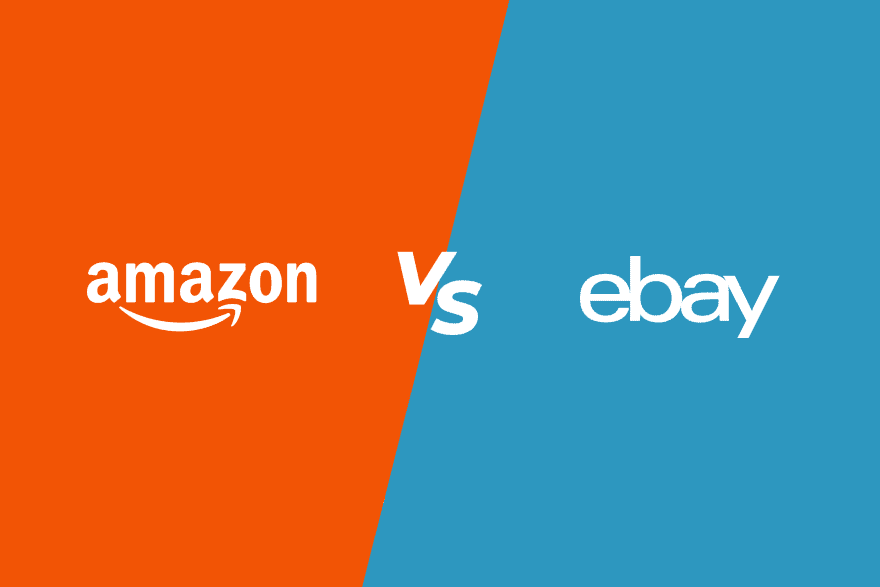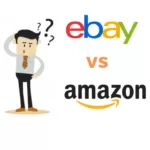Is it Better to Start on Amazon or eBay?

In the ever-evolving landscape of e-commerce, two giants stand tall – Amazon and eBay. For aspiring online entrepreneurs, choosing the right platform to kickstart their journey can be a perplexing decision. Each platform offers a unique set of advantages and challenges, and it’s essential to weigh the pros and cons carefully before making a choice. In this article, we’ll delve into the key aspects of both Amazon and eBay, helping you determine which platform might be the better starting point for your e-commerce venture.
Understanding the Basics
Amazon – The E-commerce Behemoth
Amazon needs no introduction. Founded in 1994 by Jeff Bezos, this e-commerce titan has grown to become one of the largest online marketplaces globally. With millions of daily visitors and a vast product catalog, Amazon is the go-to platform for many online shoppers.
eBay – The Online Auction House
eBay, on the other hand, was established in 1995 as an online auction and shopping website. Over the years, it has evolved into a marketplace that offers both fixed-price and auction-style listings. eBay’s distinct feature is its auction-style format, which sets it apart from Amazon.
Factors to Consider
Product Types
Amazon primarily caters to sellers of new products. It’s an ideal platform if you plan to sell brand-new items, including electronics, clothing, and household goods. eBay, on the other hand, is versatile, allowing you to sell both new and used products. If you have unique or collectible items, eBay might be your preferred choice.
Fees and Costs
When starting an online business, cost considerations are crucial. Amazon charges a referral fee and, in some cases, a subscription fee for its services. eBay, on the other hand, charges insertion fees for listing items and a final value fee when a sale is made. Depending on your business model and budget, one platform might be more cost-effective than the other.
Audience Size
Amazon boasts a massive customer base with millions of active users. This means you have access to a vast audience ready to make purchases. eBay, while still substantial, has a slightly smaller user base. Consider whether you prefer a larger but potentially more competitive market or a somewhat smaller but potentially more niche audience.
Competition
Competition on Amazon can be fierce, especially for popular product categories. eBay, with its auction-style format, can sometimes lead to competitive bidding wars, but it can also provide opportunities for unique items to shine without direct competition.
Branding and Control
Amazon offers a more structured and controlled selling environment, which can limit your ability to build a unique brand. eBay, on the other hand, allows for more customization in your listings and branding.
Fulfillment Options
Amazon provides Fulfillment by Amazon (FBA), a service where Amazon handles storage, packing, and shipping of your products. This can save you time and effort. eBay sellers typically handle their own fulfillment unless they opt for third-party fulfillment services.
Customer Trust
Amazon is known for its strong customer trust due to its rigorous customer service and return policies. eBay’s trust levels can vary depending on individual seller ratings and feedback.
Long-term Sustainability
Consider your long-term goals. Some sellers use eBay as a stepping stone to build their brand and customer base before expanding to Amazon. Others prefer to establish their presence on Amazon right away.
Making Your Decision
Both Amazon and eBay have their merits, and the choice ultimately depends on your specific circumstances and business goals. Here are some key takeaways to help you decide:
- If you have brand-new, mainstream products, and want access to a vast customer base, Amazon might be the better choice.
- If you have unique, collectible items, or want more control over your branding, eBay could be the starting point.
- Consider your budget, as fees and costs can differ significantly between the two platforms.
- Think about your long-term strategy and whether you plan to expand your e-commerce presence beyond your initial choice.
In conclusion, there is no one-size-fits-all answer to whether it’s better to start on Amazon or eBay. Both platforms offer opportunities for success, but the path you choose should align with your business model and objectives.
Unique FAQs
- Can I sell the same products on both Amazon and eBay simultaneously?
- Yes, you can, but it’s essential to manage your inventory and pricing effectively to avoid complications.
- Which platform has better customer support for sellers?
- Amazon typically offers more robust customer support and policies for sellers.
- Are there any restrictions on the types of products I can sell on Amazon or eBay?
- Yes, both platforms have guidelines and restrictions on certain product categories. It’s essential to review their policies before listing items.
- Can I use Fulfillment by Amazon (FBA) on eBay?
- No, FBA is exclusive to Amazon. eBay sellers usually handle their own fulfillment.
- Is it possible to switch from one platform to the other once I’ve started selling?
- Yes, many sellers expand their presence by selling on both platforms or transitioning from one to the other as their business grows.
Choosing between Amazon and eBay is a significant decision for your e-commerce journey. Careful consideration of the factors mentioned here will help you make an informed choice that aligns with your business objectives and sets you on the path to e-commerce success.



